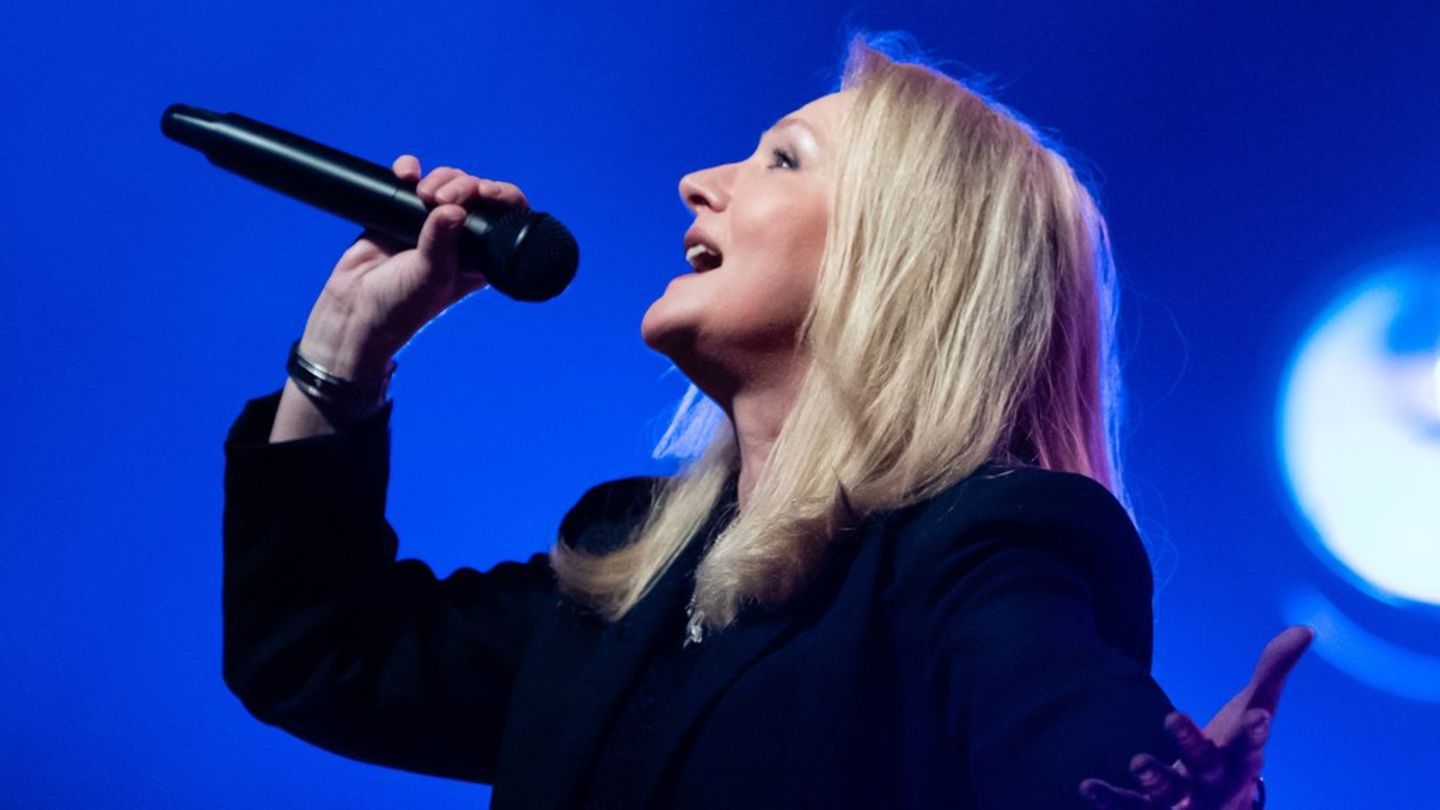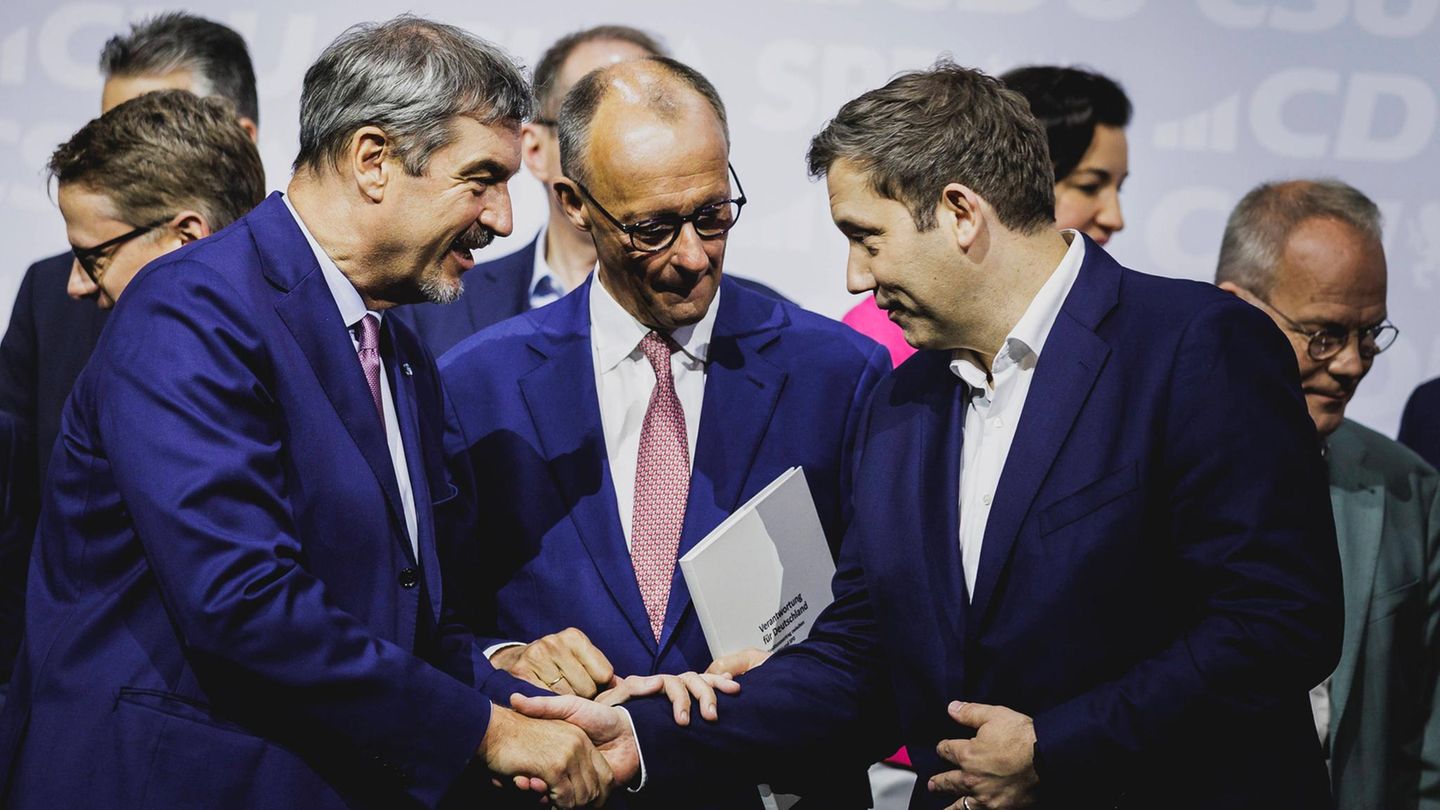First German winner
For Nicole, ESC has to “go back to the roots”
Copy the current link
In the interview, Nicole talks about her new album and reveals what she now thinks of the ESC, which she won for Germany in 1982.
Nicole (60) will release her new album “Carpe Diem” on November 15th. In an interview with the news agency spot on news, the singer talks about the special song “I congratulate myself”, her faith and her connection to her homeland. The musician, who won the Eurovision Song Contest for Germany for the first time in 1982 with “A Bit of Peace,” also reveals how she looks at her ESC victory today and why she now criticizes the music competition.
In “I congratulate myself” you look back on your journey, starting with your “little song just for peace”. How do you feel about your ESC victory today?
Nicole: “I congratulate myself” is not meant to be boastful or condescending at all. It is the pride in what I have achieved over the last 40 years, both professionally and personally. Everything I dreamed of as a teenage girl has come true. I wanted to win Eurovision for Germany. I wanted to have a great family and balance everything. I managed all of this and was also lucky as a Sunday child. I was able to travel to countries and film in a variety of places and have great encounters. I just feel gratitude, pride and humility to have been able to experience all of this and that I managed to do it all. I can, with a clear conscience, pat myself on the back and say, “Girl, you did good.”
In the new song about “A Little Peace” you also sing: “It spoke from people’s hearts and that’s not that easy.” Do you still get a lot of reactions to the song today?
Nicole: Yes, this song will never lose its relevance and its message. There will always be war somewhere in the world. You just have to follow the news, Ukraine, Russia, Israel. That fills you with powerlessness. When I sat on stage in Harrogate 42 years ago, I had a stool, a white guitar and a peace song, nothing more. But it had the power to speak from the hearts of 750 million people. It’s not as easy as I sing in “I congratulate myself.” It touched her deeply and it still reaches her today. Before I sing the song towards the end at every concert, I like to tell the audience what happened back then. It wasn’t just the first victory for Germany, the second sensation was the twelve points from Israel to a German girl with a peace song. The invitation to Israel to sing for the soldiers there, the image of them laying their weapons on the ground and listening to me, you can’t get that out of your head or your heart. I felt that this song had such a magic to connect people with each other, no matter what their origins or history. You don’t find songs like that very often.
What is it like for you to perform the song today?
Nicole: When I sing it at concerts, the hall is bathed in a sea of lights. It used to be lighters, now it’s cell phone lights, but the effect is the same. There is no fear of contact, there is an 80-year-old sitting next to a 20-year-old, there is a man with a leather jacket sitting next to a man in a suit. They don’t know each other, and suddenly they grab each other’s hands, stand up, make a peace sign or take out a tissue and cry.
Are you still following the ESC?
Nicole: I watch it every year, but I have to say it’s getting harder and harder for me. It’s just loud, shrill and bizarre. It no longer affects me and there is no longer a song that touches my heart. Back then we had a single stage that was the same for everyone and everyone had the same conditions. It was a fair competition. There was no pull-up stage, no LED screen or an Olympic gold medalist skating on the stage. We were also 18 participants, now we have 28, which have already been eliminated from 56 and it’s just a matter of how to stand out the most.
What would you like for the ESC then?
Nicole: It’s a European song competition, it’s not about the best lighting design. The song, the lyrics, the composition and the performance will be judged. Nobody stands up and just sings anymore. I want songs that touch me, that give me goosebumps, I haven’t experienced that in 20 years. Back to the roots, goes back to the roots, composes a song where I have tears in my eyes, where I think: “Oh, is it over yet?” And don’t have to say: “Phew, when will this finally be over?” (laughs)
In “Only by God’s Hand” you sing: “If I ever have to die, it will only be by God’s hand.” How important is your faith to you?
Nicole: Very important. Believing doesn’t mean knowing, but you have to have something you believe in. Sometimes faith moves mountains and things happen that you never thought possible. The song is about: I don’t want to die a violent death, I don’t want someone else to decide when I have to leave. Only one person can decide that, and that is the good Lord. If he says, “It’s time, I’m calling you,” then that’s a good thing.
“Forever Your Child” is about a mother-daughter relationship. How did you come up with the topic?
Nicole: Family disputes happen in the best families, but it can be dangerous if the words “forgive me” are not spoken. The song is about: “In the biggest storm, I am and will still be your child.” You have to be aware that you shouldn’t waste the time you have on earth with arguments. Sometimes things happen and you don’t have time to say “Forgive me” anymore, it stays with you for life. I am a person who needs a lot of harmony. I don’t like poisoned air. You’re more relaxed when you know that everything is okay, that everyone understands each other and is doing well. Arguments are not good for the soul or the body.
Your song “Friends” also shows your close relationship with your friends. Do you have long-standing friendships?
Nicole: Yes, many friends from before still remain friends today. My career and notoriety haven’t changed that. I love this song because it just radiates so much joy. I start every concert with this song because it fits so well when I sing: “It’s nice to be here with you again.” When I invite friends over, I will soon greet them musically (laughs).
Is your environment also a reason why you stayed in your home country and are so rooted there?
Nicole: Yes, the biggest cities tried to lure me, but the attempts failed miserably (laughs). We Saarlanders are very close to our homeland and very down-to-earth. Here are my friends and my family. Here I don’t have to be Nicole, I can be Mrs. Seibert, or “our Nicole”, as the people in the village say (laughs). I am proud that I am one of them and value freedom. I can go to the baker’s wife, I bake a cake for the shooting club like all the other mothers. Everyone treats me normally, but they also know what my job entails, that it’s not all that easy, and they respect that and tolerate me in the most positive sense. I am protected and protected here and I could never give that up.
How do you manage your tour when you enjoy being at home?
Nicole: You prepare for the fact that a tour involves many kilometers that you have to cover. But you will be rewarded for it every night. When people go home after two and a half hours with the sentence on their lips: “What a lovely evening, thank you very much,” then I am inspired. I’m also happy about the many loyal fans who have been by my side for 40 years, real repeat fans who travel with me throughout the tour and always sit in the front row in the middle. I already know almost all of them by name and they now have children and grandchildren with them. I’m very proud of that.
SpotOnNews
Source: Stern
I am an author and journalist who has worked in the entertainment industry for over a decade. I currently work as a news editor at a major news website, and my focus is on covering the latest trends in entertainment. I also write occasional pieces for other outlets, and have authored two books about the entertainment industry.




